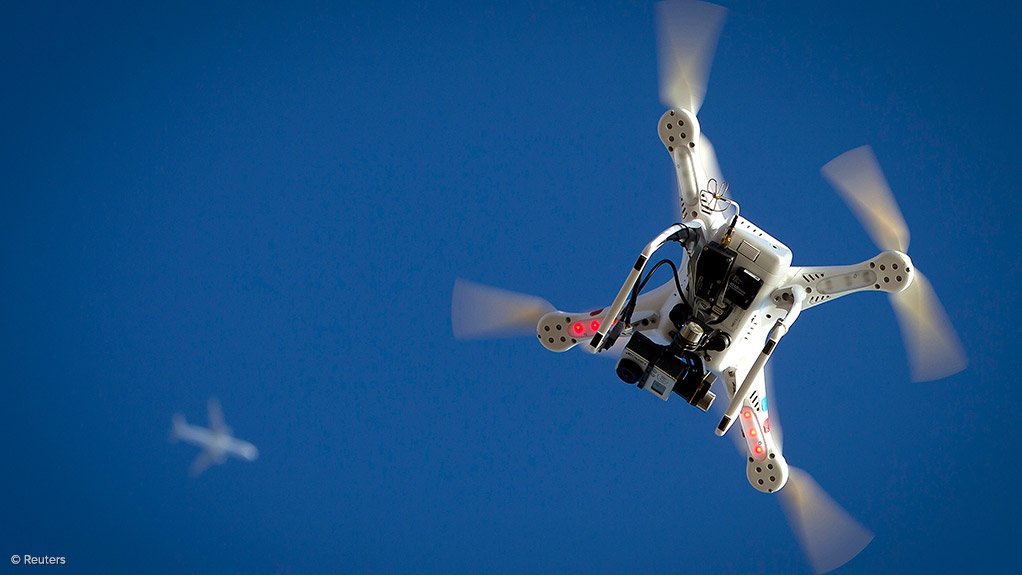In the same way that manned aircraft received much of their technological impetus from their deployment as weapons of war, so too have unmanned aircraft, or drones.
Drones are unmanned flying robots which may be controlled remotely or autonomously, receiving their instructions from self-contained software or hardware combinations. They vary in size from a wingspan of a few centimetres to tens of metres.
In both the first and second world wars drones were rapidly developed for varying purposes. These included:
-
serving as target practice for ground and air-based gunners;
Advertisement
-
in surveillance; and
-
as offensive weapons carrying explosives.
This pace has been maintained ever since. But the use of drones for military situations is increasingly being adapted for peaceful purposes. It is to be hoped that these constructive uses will come to dominate their use in the future.
Why drones could be helpful
The distribution of health care around the world is notoriously uneven. Remote rural areas do not get their fair share of resources. Attempts to attract healthcare professionals to work in rural areas to redress this imbalance have been only partially successful. An alternative approach is needed.
Medical practice has been bolstered by technological advances that lend themselves to rural application more readily than the redeployment of healthcare personnel. One example is the burgeoning use of diagnostic technologies, such as molecular testing. The technology is not only used for diagnosis but also to guide which therapeutic options are likely to be effective.
In testing for tuberculosis, a simple DNA based test can provide both an unambiguous diagnosis and microbicidal sensitivity profile at a single stroke. This spares the patient the need to see a doctor to make the diagnosis before therapy can be initiated. And it obviates the fruitless therapeutic trial of agents that will not be effective.
The advent of cell phone networks has significantly aided the way results are transmitted from the laboratory to the clinic. But this is obviously not applicable to physically transporting samples.
Drones are potentially a solution to this logistical problem.
A cargo-carrying drone service could also be used to support remote areas with medical supplies such as point of care testing materials and therapeutic agents including pharmaceuticals, blood, sera and vaccines.
Through several studies we have concluded that DNA samples of sputum are arguably the perfect cargo for delivery drones. This is because they are lightweight, occupy very little space and have zero commercial value. This means they will not be a target for would-be thieves.
They are also mission-critical for effective health care and are readily disinfected to remove biohazards while preserving analytical integrity. DNA is also sufficiently robust to resist degradation by physical or chemical treatments that inactivate pathogens.
Relying on new technology for effective health care in remote areas is still critically reliant on effective logistic support to transport samples to the nearest laboratory capable of performing the test, and to transmit the result back to the clinic.
Alternatives to drones
There are two alternatives to drones: land-based transport in the form of motorbikes or cars and air-based transport such as helicopters.
Air transport by helicopter is very expensive and dangerous while land-based transport is vulnerable to the state of the roads, which are frequently impassable in developing countries. Using cars also means that longer distances must be covered, compared to a straight line route enabled by air.
A conceptual alternative to the logistic problem is so-called near patient testing point of care centres at clinics. The equipment to perform the test is located and operated at the rural clinic itself. But this is expensive to implement and difficult to operate.
The challenges
The first challenge is creating a legislative framework enabling the South African Civil Aviation Authority to legitimise cargo carrying drones. The second is recruiting and training suitable drone operators, preferably from local communities.
There are indications that the Civil Aviation Authority may entertain exemptions to some of its stringent regulations for particularly deserving cases, especially if the risks are small. With ultra-low mass DNA-transporting drones in remote rural areas, where population density and air and land traffic volumes are low, the risks are minimal.
In the developed world civil aviation authorities are imposing increasingly arduous legislative restrictions on drones. These are considered necessary to reduce the risk of accidents and the use of drones for nefarious purposes.
In these countries they are mainly used for military purposes. But there are many examples of peaceful cargo-carrying drones that are used for a host of disparate purposes such as surveillance, aerial photography, agriculture, remote monitoring, crime prevention, medical functions and many others.
The developing world is more in need of drones as a viable means of leapfrogging over infrastructural inadequacies. This might narrow the gap between developed and developing worlds.
![]() Written by Barry Mendelow, Emeritus Professor of Pathology, University of the Witwatersrand
Written by Barry Mendelow, Emeritus Professor of Pathology, University of the Witwatersrand
This article was originally published on The Conversation. Read the original article.
EMAIL THIS ARTICLE SAVE THIS ARTICLE
To subscribe email subscriptions@creamermedia.co.za or click here
To advertise email advertising@creamermedia.co.za or click here











